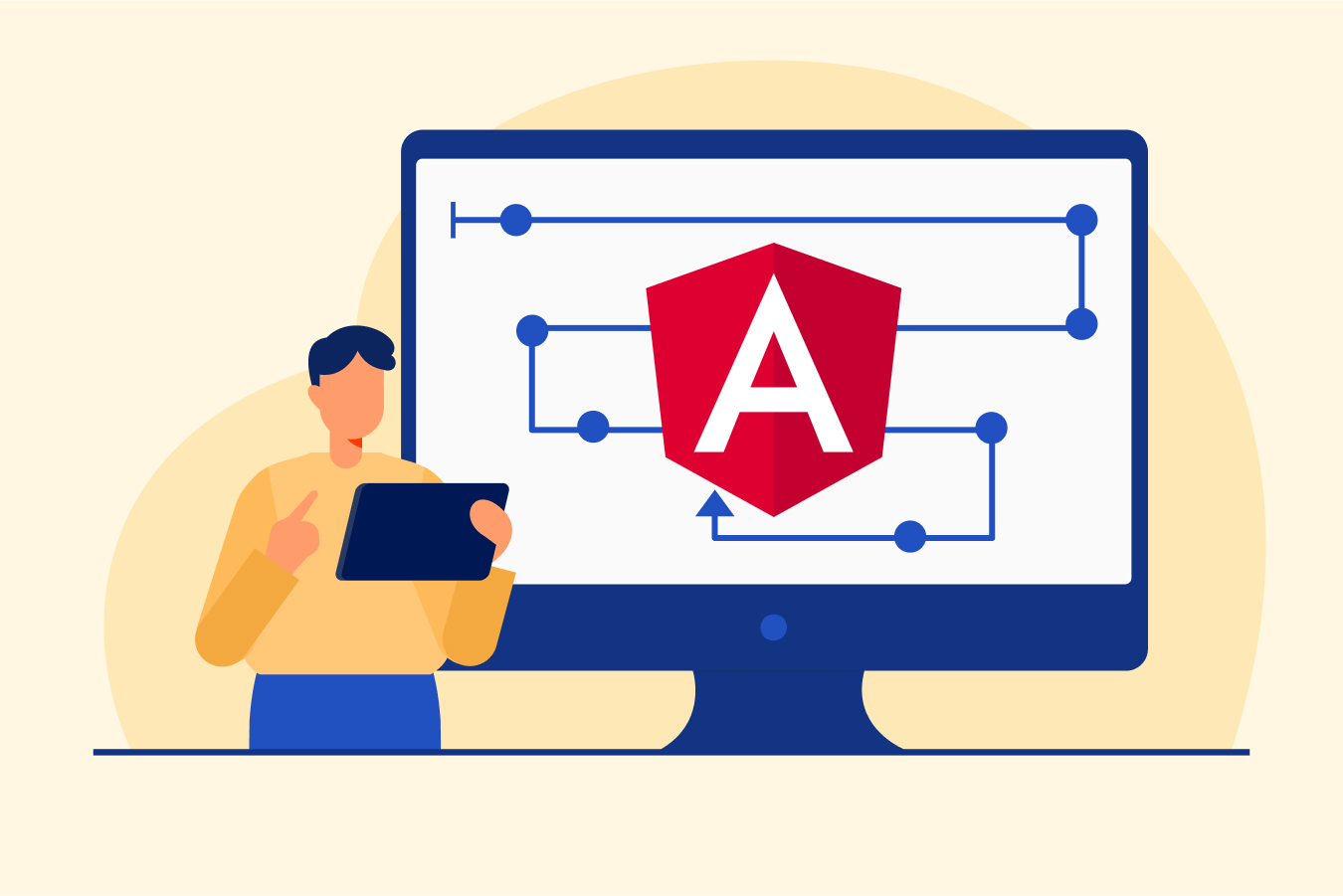Functions in C – Understanding the Basics
Functions are a crucial part of any programming language, of which C is no exception. They are a collection of statements that perform a specific task. These statements are enclosed in a code block and executed when the function is called. Functions can be utilized to lessen code duplication and increase code modularity. In this blog, we will learn about functions in the C programming language. We will also cover everything from defining functions to passing arguments, return types, function prototypes, and recursion.
Introduction to Functions in C
A function is a self-contained block of code that performs a specific task. It allows us to write reusable code that can be called from various parts of a program as per requirement. It is a powerful tool that makes programming easier, faster, and more efficient.
The body of the function is defined separately and contains a set of statements that execute whenever the function is called. If arguments are passed to the function, the variables corresponding to them are also defined within the body of the function.
Defining Functions in C
In C programming language, functions can be defined in the following two ways:
1. Functions Without Parameters:
They have empty parentheses after the function name. They are useful for executing a set of statements independently of external input.
2. Functions With Parameters:
They take input from the caller or the main function. The input values are referred to as arguments.
Functions are defined using the syntax –
return_type function_name( parameter list )
{ code_to_execute; return value; }
Syntax of a Function
A function in C is defined using the following syntax:
return_type function_name(parameters){
// function body
}
Let us take a deeper look at each element included in this syntax:
Return Type:
The return type of a function indicates the type of value the function will return after the execution of its operations. The return type can either be a primitive data type or a pointer. It is compulsory to specify the return type for a function.
Function Name:
Function name is the name given to the function which we are creating. A function name can be any valid identifier that matches the naming conventions of C language.
Parameters:
They are the values passed to the function during the function call. Parameters are optional and a function can possess numerous parameters.
Function Body:
The function body implies the set of instructions executed when the function is called. A function body can possess one or many statements.
Working with Functions in C
Let us now see the working of these functions.
1. Calling Functions
Once you have defined a function, it can be called from other parts of your program. The syntax for calling a function is –
function_name(argument 1, argument 2, ... argument n)The return type along with the parameters of the function must match the signature defined for the function.
2. Return Type of Functions
In C, functions can return a value or no value. Functions that do not return a value have a return type of void. Functions that return a value have a return type that matches the data type of the value being returned. The return statement is used to return a value from the function. If the return statement is eliminated in a non-void function, the return value is undefined, and the program behavior is undefined.
3. Passing Arguments to Functions
Functions can take arguments in C. These arguments are passed by value, meaning that a copy of the argument’s value is created and passed to the function. Changes made to the argument within the function do not affect the original value present outside the function. Arguments can also be passed by reference utilizing pointers.
Function Prototype in C
A function prototype implies the declaration of a function that defines the name of the function, its return type, and the types of its parameters. The prototype is situated at the top of the file or in a header file. It provides the compiler with the required information to perform its task of a compilation of the function call before the function definition. This technique is utilized when the function is defined after its first use.
Types of Functions
In C, there are two types of functions. These are:
1. Built-in Functions:
They are functions involved in the C standard library and are used to perform common tasks, such as input/output operations, string manipulation, and mathematical calculations. Some examples include involve printf(), scanf(), rand(), etc.
2. User-Defined Functions:
These are functions created by the user to execute specific tasks. An advantage of user-defined functions is that they can be designed to perform any given task which is not predefined. Thus, they enhance the flexibility along with the versatility of the program.
You can learn more about functions in C by taking this in-depth course on C programming.
Functions with Parameters and Return Values
Functions in C can possess parameters and return values to shape them into more flexible and adaptable functions. Parameters enable the passing of values to the function originating from the caller. The values can be returned to the caller from the function utilizing a return statement.
For example, consider a function that adds two numbers.
int add(int x, int y){
int result;
result = x + y;
return result;
}
In this function, we have declared two integer parameters x and y, and added them to produce the result. The result is then returned to the caller using the return statement, which is of the integer data type.
A function can also return more than one value by using pointers. Pointers allow us to return the address of the values instead of returning the value itself.
Recursive Functions
A recursive function is a function that calls itself during its execution. They are useful when solving problems that can be broken down into smaller sub-problems, or when we need to perform the same operation on different data elements.
The recursive function should have a base condition that determines when the function should stop calling itself. It can be used to solve complex problems such as finding the factorial of a number or sorting an array.
Here is the code for calculating the factorial of a number recursively:
int factorial(int n){
if (n == 0){
return 1;
}
else{
return n * factorial(n-1);
}
}
In this function, we verify the base condition of n = 0, and if it comes to be true, we return 1. However, if n does not come out to be zero, we create a recursive call to the same function by passing (n-1) as a parameter. The factorial function keeps calling itself until the base condition is met, and the final result is returned to the caller.
Pre-Processor Directives
Pre-processor directives are lines in C programs that are initiated with a pound symbol ( # ). These lines are not compiled but instead interpreted by the pre-processor before the actual compilation of the code.
They are utilized to define constants and macros, involving the header files, along with conditional compilation. An example of pre-processor directives is specifying constants.
Advantages of Functions in C
The utilization of functions has numerous advantages, including:
1. Code Reuse:
Functions enable you to use a piece of code multiple times in different parts of your program. This results in saving time and effort as you do not have to rewrite the same code repetitively.
2. Modularity:
They simplify the code structure by segregating the code into smaller, more manageable components. It makes it simpler to interpret and debug the program. It also lessens the complexity of the code, which is crucial when functioning with bigger projects.
3. Code Organization:
They enable programmers to organize their code by grouping the related statements. It makes it easier to navigate through the program and find specific parts of the code which are required to modify.
4. Abstraction:
Functions enable you to abstract the implementation details of a code block, hiding it behind a function interface. This implies that you can alter the implementation of the function without causing any changes to the program. It provides a level of abstraction that makes code maintenance and modification easier.
5. Code Clarity:
Functions facilitate clear, readable, and structured code by segregating the code into smaller modules. They also make it easier for interpretation and maintenance.
6. Modularity and Scalability:
Functions make a code modular, scalable, and easier to extend. New functions can be joined with ease with the existing code and the old ones can be easily removed or modified.
7. Debugging:
Functions in C simplify debugging as you can segregate the code into numerous functions and debug each function separately with increased efficiency. It makes it simpler to recognize the source of an error and troubleshoot the program.
8. Memory Management:
Functions make memory management simpler as they involve the creation of their local variables, which are automatically destroyed when the function returns. This suspends the need for manual management of memory, shaping the code into a more efficient one and less prone to errors.
Conclusion
Functions are essential in C programming. They offer a simple and efficient way of organizing and structuring code. They also offer code reuse, modularity, and flexibility. This article gave an overview of the syntax, types, usage, and benefits of functions in the C programming language. By using functions, programmers can create programs that are easy to read, maintain, scale, and extend.






